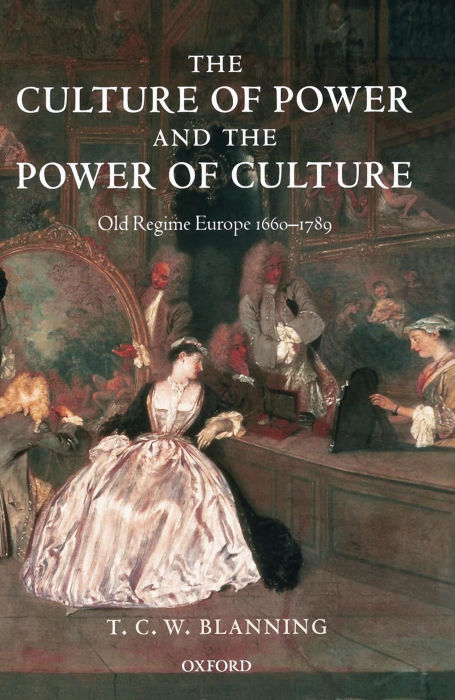Books
T. C. W. Blanning
The Culture Of Power And The Power Of Culture
Old Regime Europe 1660-1789
T.C.W. Blanning’s The Culture of Power and the Power of Culture: Old Regime Europe 1660-1789 is a sweeping exploration of how culture and politics intertwined to reshape the European landscape before the French Revolution. Blanning reveals a world in flux, where the glitter of royal courts gave way to the vibrant, critical energy of the public sphere. In these pages, the rise of newspapers, coffee houses, and literary critics becomes as crucial to the story of Europe as the actions of kings and ministers. This is the story of how culture itself became a force capable of challenging—and ultimately transforming—power.
Blanning’s account traces a profound cultural revolution that unfolded across eighteenth-century Europe, shifting the center of gravity from the royal courts, epitomized by Louis XIV’s Versailles, to a burgeoning public sphere. In this new space, a host of modern institutions took root: periodicals, lending libraries, coffee houses, voluntary associations, and the very notion of the journalist and the critic. These innovations fostered a new kind of public debate and engagement, allowing ideas to circulate and challenge the traditional monopoly of power held by monarchs and aristocrats. Blanning shows how the court’s representational culture—rooted in spectacle, patronage, and hierarchy—was gradually supplanted by a culture of opinion, where the voice of the public began to matter.
The book’s comparative approach moves across France, Britain, and the German states, illustrating both common patterns and distinctive national developments. Blanning is especially attentive to the complex relationship between the court and the public, showing that they were not always in opposition; often, they reinforced each other, as in the mutually beneficial ties between princes and literary celebrities like Goethe. Yet, as the eighteenth century progressed, the public sphere became increasingly independent and critical, culminating in the revolutionary upheavals of 1789. Blanning argues that the rise of nationalism and the mobilization of public opinion was decisive in undermining the old regime, even as the legacy of court culture persisted in new forms
Blanning’s work is celebrated for its blend of rich narrative, comparative analysis, and attention to both high culture and everyday life. He challenges traditional accounts that focus solely on political or social structures, instead highlighting the dynamic interplay between culture and power. While some readers may debate the weight he gives to nationalism or the nuances of different national experiences, the book’s core insight—that cultural change was central to the political transformation of Europe—remains compelling. The Culture of Power and the Power of Culture is essential reading for anyone interested in how ideas, institutions, and public debate helped shape the modern European order.

